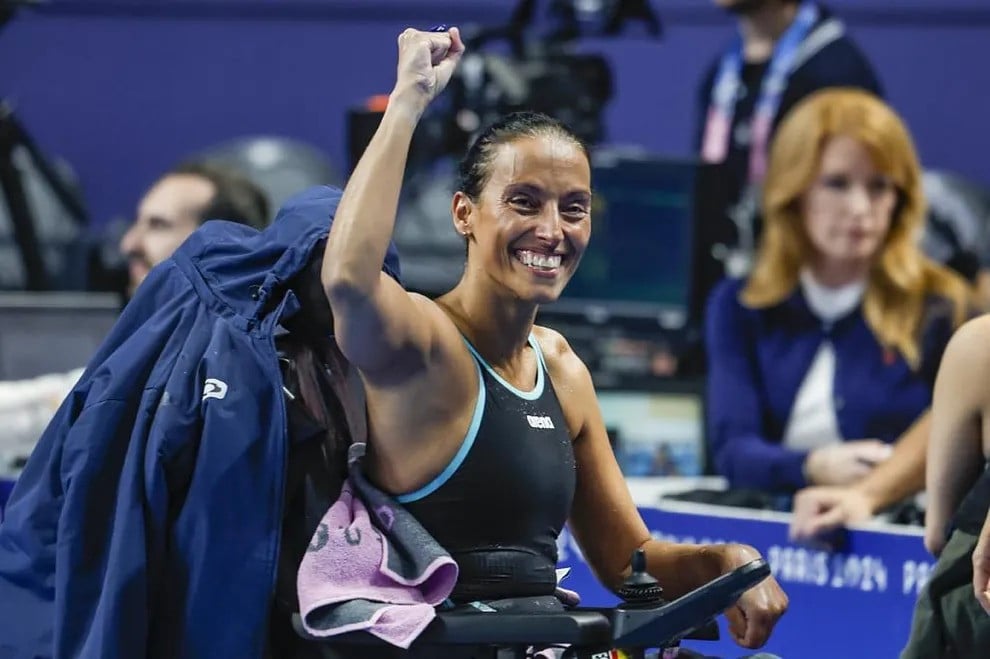 Science & Environment
Science & Environment
Teresa Perales defies the odds again with dramatic Paralympic…
Teresa Perales, a living legend in Paralympic swimming, continues to defy the odds and add to her illustrious career. No adjective seems sufficient to describe her achievements, and nothing seems impossible when it comes to her. Her latest feat, securing a bronze medal at the Paris Paralympic Games on Saturday, is not just another victory but a testament to her resilience and ability to overcome insurmountable challenges.
Reaching the Paris Games was already an achievement in itself for Perales. After facing an incredibly difficult training cycle, in which her disability worsened, she had to learn to swim with only one arm. For her, simply making it to the competition felt like winning a medal. In the morning heats, she recorded the sixth fastest time, but her team had unwavering faith in her ability. “If anyone can do magic, it’s Teresa,” her coach Darío Carreras told MARCA. And magic she did, earning a bronze medal in the 50-metre backstroke with a time of 1:10.95 – a bronze that felt as precious as gold. This medal marks her 28th Paralympic medal, placing her on par with the great Michael Phelps, with a tally of 7 golds, 10 silvers, and 11 bronzes. Moreover, this marks her seventh consecutive Paralympic Games podium appearance, an achievement that leaves many speechless.
This accomplishment is not just about her physical prowess; it’s a celebration of her determination, faith, and tireless dedication. It is the culmination of years of hard work and an extraordinary ability to turn the impossible into reality. From the moment Carreras released her at the edge of the pool, Perales was determined to give it everything she had.
Each stroke was powered not just by her body but by her heart, and it was clear from the outset that she was a strong contender for a medal. The race was fiercely competitive, with Perales moving between third and fourth place throughout. In a thrilling final few metres, the bronze medal was decided by just two-hundredths of a second. Perales clocked in at 1:10.95, just ahead of Italy’s Angela Procida, who finished with a time of 1:10.97. The gold was out of reach early, with Singapore’s Pin Xiu Yip dominating with a time of 1:05.99, while Mexico’s Haidee Viviana Aceves Perez claimed silver with 1:08.96.
“I didn’t care about the colour of the medal; I just wanted my 28th. This is the most epic one of my career because of everything behind it,” Perales said. “I’ve had to reinvent myself, and this reminds me that we’re all survivors and that we can overcome anything.”
Since the Tokyo 2020 Paralympics, Perales’ condition has worsened. She has lost much of the mobility in her left arm and now swims only with her right, which had previously been the weaker of the two. She now wears a black splint on her left hand, which is inscribed with the names of all the Paralympic Games she has participated in, from Sydney 2000 to Paris 2024. Her determination to fight through adversity was already an achievement, but now she has a physical medal to remind her that perseverance brings rewards.
Despite hating the pool as a child, swimming has become her second love, after her family. Her return to Tokyo in 2021 saw her face a severe health crisis, and she subsequently had surgery on her left shoulder. The recovery process did not go as planned, forcing her to adapt to swimming with just one arm. However, the most challenging part was mental. She had to visualise herself swimming in this new way, a process that was difficult both for her mind and her self-esteem. Initially, she was embarrassed about needing assistance to enter and exit the pool.
Yet, through it all, Perales never lost her ambition. She had been aiming to match Phelps’ record of 28 medals ever since tying him at 22 medals in London 2012, keeping her own personal tally against him. She also wanted this medal for sentimental reasons: the 2024 Paralympic medals feature a piece of the Eiffel Tower, where her husband proposed to her 20 years ago. Her husband, son Nano, mother, brother, and sister-in-law were all in the stands, fully aware of the struggles she had endured over the past two years.
“For Teresa, it has been about learning not just how to swim again, but how to manage everything in her life,” said Mariano Menor, her husband. “Despite all the difficulties, she has made the process hard for herself but easy for us. No complaints, no regrets.”
